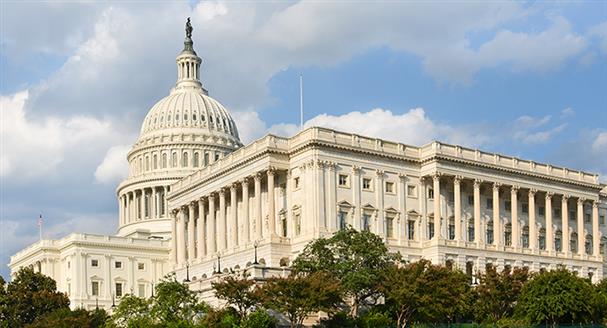Only 36% ready to re-elect incumbent Congressmen in Arkansas
by July 26, 2017 5:25 pm 3,175 views

Arkansas’ four incumbent GOP Congressmen could be in for a rocky ride in 2018.
A new Talk Business & Politics-Hendrix College survey finds just 36% of Arkansas voters are certain they would re-elect their Congressman if the election were today.
Q: Your current Congressman is Republican and is up for re-election in 2018. If the election were today, would you vote to re-elect him or are you open to another candidate?
36% I would re-elect my current Congressman
58% I am open to another candidate
6% Don’t know
Arkansas is represented in the U.S. House by Reps. Rick Crawford (R-AR1); French Hill (R-AR2); Steve Womack (R-AR3); and Bruce Westerman (R-AR4).
The U.S. Congress has passed a healthcare reform measure that is stalled in the U.S. Senate. The Congressional Budget Office score for the House plan said it would remove 26 million people from health insurance rolls over the next decade, but would reduce the federal budget deficit by $119 billion. All four of Arkansas’ representatives voted for the measure.
Other major legislation – including tax reform, passing a budget, raising the debt ceiling, and an infrastructure package – have not seen Congressional floor action.
Also, President Donald Trump, the GOP standard bearer, has seen his job approval rating decline among Arkansas voters from 60%-35% approve-disapprove to just 50%-47% in the span of five months.
“The national narrative is that Congress has done little during the first six months of the Trump administration. Sen. John McCain seemed to affirm that in his Senate speech on Tuesday,” said Roby Brock, Editor-in-Chief for Talk Business & Politics. “Rightly or wrongly, there appears to be frustration emerging in the electorate toward the President and federally elected officials. With 58% of voters being open to another candidate other than the incumbent at this juncture, there’s a good chance that challengers will be encouraged by this survey result.”
ANALYSIS
Dr. Jay Barth, professor of political science at Hendrix College, helped craft and analyze the latest poll. He offered this analysis of the poll results:
“Our polling suggests that Arkansans are surprisingly open to considering alternatives to their incumbent representatives in Washington. Only 36% of the respondents in the survey are certain that they would vote to re-elect their GOP House member while 58% assert to be “open to another candidate.” While partisans broke in the expected directions (65% of Republicans say they remain happy with their incumbent representatives, while 88% of Democrats are open to a different candidate), independent voters broke 55% to 39% for contemplating other candidates.
“Before we read too much into the results, it is vital to offer several warnings. First, “openness” to considering another candidate is a good distance away from actually voting for a specific opponent over a year from now; some voters desire to show openness to alternatives even when their voting patterns are clear. That said, the low percentage of the Arkansas electorate locked into voting for an incumbent congressman is quite similar to the “re-elect” numbers of Democratic Senators Blanche Lincoln and Mark Pryor one year before being beaten badly in their 2010 and 2014 re-election campaigns, respectively. So, it would be a mistake to completely discount these numbers.
“Second, the names of the incumbent GOP congressmen were not included as this was a statewide sample covering all four congressional districts; this reduces the benefit incumbents gain from name recognition and other favorable perceptions.
“Finally, assuming these incumbents do run – and there has been no indication they will not – they will have advantages in political money that incumbents from a majority party typically enjoy allowing them to quickly build expansive campaigns.
“In going deeper into the crosstabs on responses to this question, social and geographic groups are consistently open to considering a new candidate. African-Americans (65%) and women (62%) are disproportionately more supportive of the possibility of new candidates.
“Interestingly, however, there is little variation across the four congressional districts. While the Second Congressional District (central Arkansas) is generally perceived as most open to Democratic candidates, it mirrors the other districts on the question. Indeed, the Third Congressional District (northwest Arkansas) respondents show a slightly lower re-election number for their incumbent. It is important, however, to note the small sample sizes in these congressional district-level analyses. In the coming months, we look to carry out district-level analyses with larger samples that also include the names of the four incumbents.
METHODOLOGY
This survey was conducted on Thursday, July 20, 2017. The poll, which has a margin of error of +/-4.3%, was completed using IVR survey technology among 511 Arkansas voters statewide.
All media outlets are welcome to reprint, reproduce, or rebroadcast information from this poll with proper attribution to Talk Business & Politics and Hendrix College.
For interviews, contact Talk Business & Politics Roby Brock by email at [email protected] or Dr. Jay Barth by email at [email protected].
